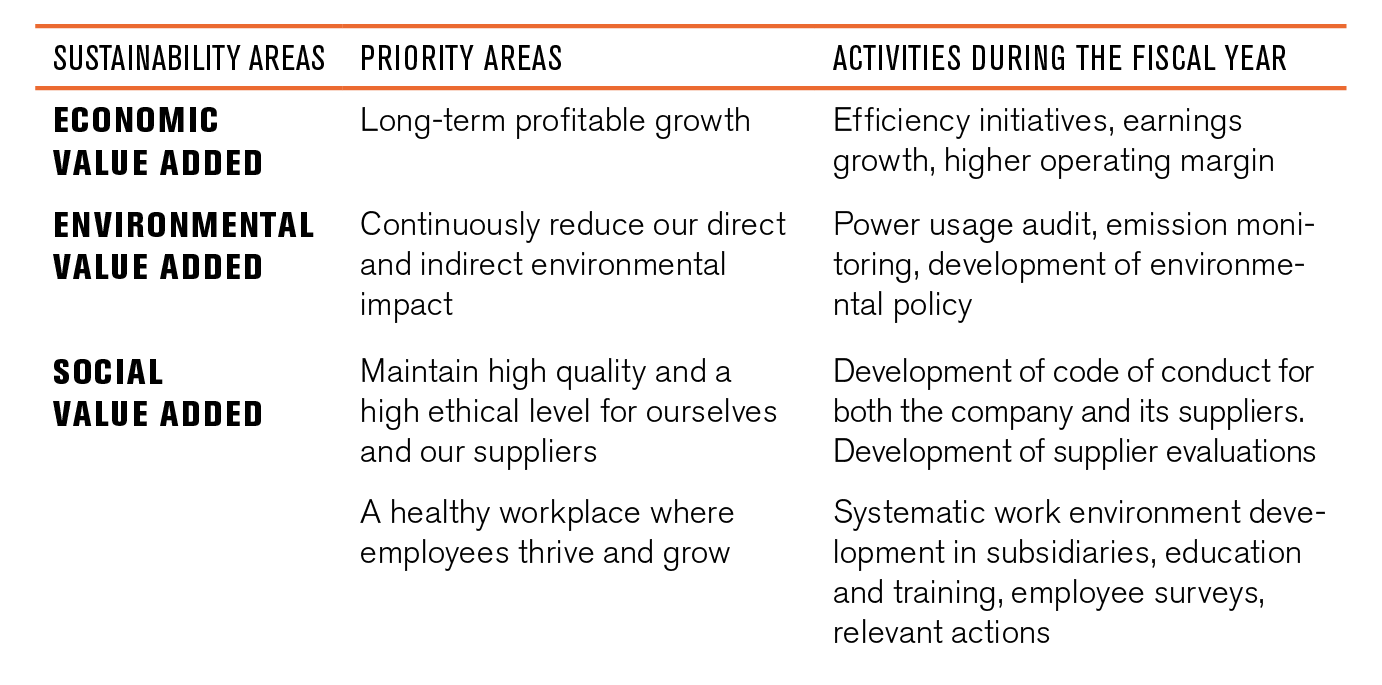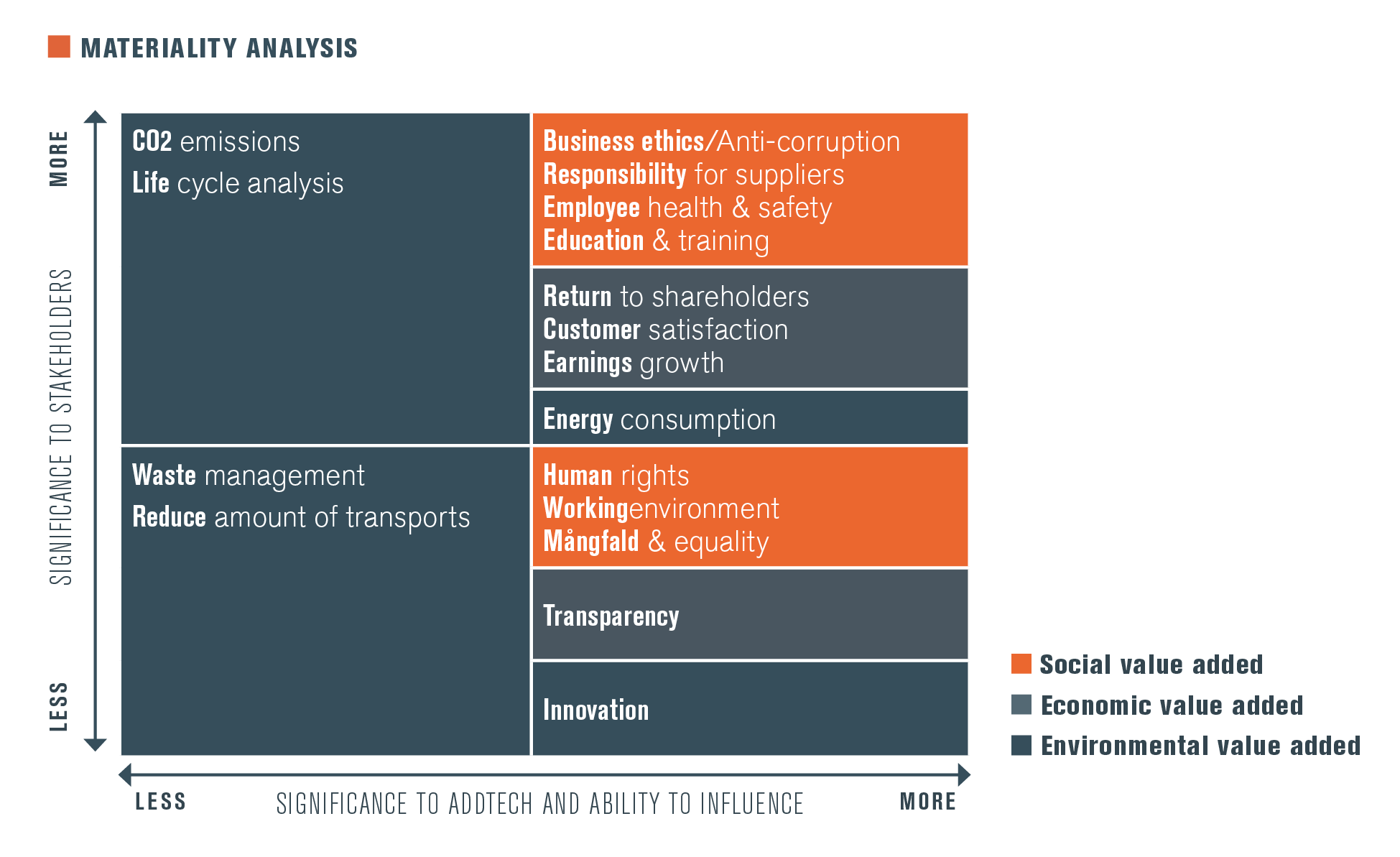Sustainability
WE ENGAGE IN SUSTAINABLE DEVELOPMENT
Addtech’s vision is to be the leading value-adding tech provider. The vision entails a long-term focus on developing the business by constantly being a value-adding knowledge provider. To achieve that vision we must run our business sustainably. Addtech aims to meet the sustainability requirements and expectations set by customers, shareholders and employees and to promote sustainable technological development.
We take long-term responsibility for sustainable development of profitability, employees and the environment. Global and local demand for lower emissions and greater sustainability in society are making sustainable products and solutions into a competitive asset in the technology trading market. We aim to be a better choice than our competitors and focus actively on meeting this demand. With a structured sustainability programme, we are developing the business to make it both stronger and more sustainable, for example by highlighting the potential for savings and improvements, as well as the risks. We are also meeting this demand by ensuring that our companies are committed to developing and offering solutions that increase customers’ energy efficiency and reduce their negative environmental impact. By continuing to develop sustainable solutions for our customers, we increase our competitiveness while helping to bring about a sustainable society.
PURPOSE AND OBJECTIVE OF THE REPORT
The purpose of this sustainability report is to describe in a transparent way Addtech’s objectives, strategies and governance, as well as its accountability, risks and opportunities from a sustainability perspective. The report is intended to provide customers, employees and shareholders with an understanding and knowledge of our sustainability work.
DIALOGUE WITH STAKEHOLDERS CREATES THE RIGHT FOCUS FOR SUSTAINABILITY WORK
Our sustainability work is affected by the fact that a number of stakeholders make demands and have expectations of us. Dealing with existing demands and planning ahead for anticipated demands is a fundamental part of our strategy for sustainable development. Our stakeholders are groups in our vicinity who affect or are affected by our operations. We strive to maintain an open dialogue with our stakeholders so we can focus our efforts on the sustainability issues that our stakeholders see as most important. We have identified five important stakeholder groups: customers, suppliers, employees, shareholders and society.
In 2016/2017, we conducted a new stakeholder dialogue to ensure that we are working and reporting on the areas that are most important to our business and our stakeholders. Via surveys and interviews, we put a number of questions to a selection of our stakeholders about their expectations of our sustainability work. The stakeholders questioned were major customers and owners, analysts and a selection of employees and Board members. The stakeholder dialogue revealed that our strengthened commitment within sustainability is valued but also that demands are increasing for continued engagement in the area.
SIGNIFICANT ISSUES AND RISKS
The findings from the stakeholder analysis revealed the most highly prioritised areas in sustainability were to create and deliver profitable growth, to reduce our negative impact on the environment, to maintain a high standard of business ethics and to provide a healthy workplace. The table below shows the work we performed in these areas over the financial year. In the materiality analysis, we weighed up the stakeholders’ observations against the risks and opportunities that are specific to us. The risks are described further on pages 38-40 in the Administration report.

